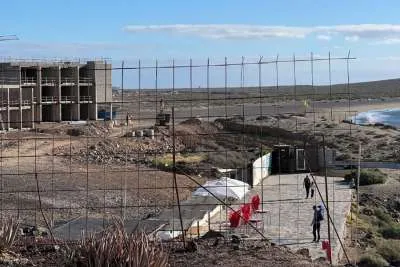Tenerife and Gran Canaria immigration offices ‘On the Brink of Collapse’ amid staff shortages
- 18-05-2025
- Business
- Canarian Weekly
- Photo Credit: Efe
Immigration offices in Tenerife and Gran Canaria are facing a severe staffing crisis, with more than 30% of positions unfilled, a situation trade union Comisiones Obreras (CCOO) warns is pushing the system to the verge of collapse.
The union has announced strike action for Monday, just one day before the new Immigration Regulation comes into force. Demonstrations will take place outside the Government Delegation building in Las Palmas and the Subdelegation in Santa Cruz de Tenerife between 12:30pm and 1:30pm.
In a statement, the CCOO denounced the chronic lack of human resources and the absence of a long-term strategy to reinforce public immigration services. In some provinces, the staffing deficit reaches 50%, it said.
Mounting Pressure Ahead of Regulatory Change
The upcoming changes to immigration law, due to take effect on Tuesday, 20th May, are expected to further strain the already overburdened system. The CCOO claims no adequate preparation or structural adaptation has been made to handle the additional administrative workload.
According to the union, over 100 civil servants processed more than 20,000 cases last year without receiving any performance-based incentives, making this the only state administration operating under such conditions.
Lack of Modernisation and Remote Work
The union also criticised the lack of a consistent remote work policy, which currently depends on decisions made at the provincial level. Additionally, it flagged that the official job structure (RPT) has not been updated in over 20 years. This, combined with a quarterly rise of more than 15,000 cases, has left staff dealing with worsening working conditions and growing backlogs.
Government Response: Eight Temporary Staff Added
In response, the Government Delegation in the Canary Islands has announced the temporary assignment of eight new staff members to support the overwhelmed immigration offices. Four will be deployed to Las Palmas de Gran Canaria and four to Santa Cruz de Tenerife.
However, union representatives argue this is far from sufficient to meet the demand created by the imminent regulatory changes and long-standing structural issues.



























































